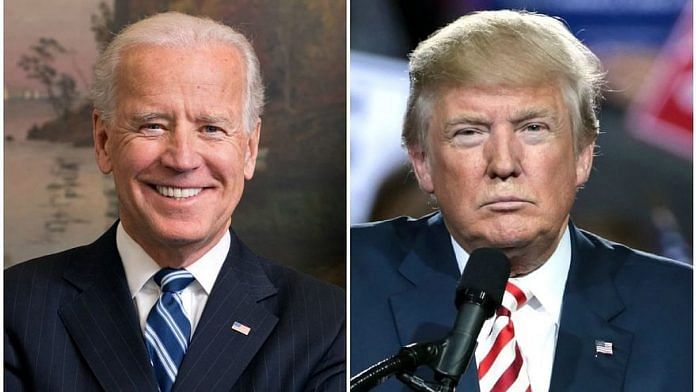Next week the Iranian regime will commemorate the two-year anniversary of the death of General Qassem Soleimani, who was killed by a U.S. drone strike on Jan. 3, 2020. President Joe Biden should also mark the occasion — by noting that the U.S. is prepared to go beyond economic sanctions in its efforts to deter Iran’s nuclear ambitions.
Soleimani — who built Iran’s Quds Force into a kind of NATO for terrorists, connecting militias in Lebanon, Iraq and Yemen into a strategic alliance — was Iran’s most important military leader. In response to his killing, Iran launched a barrage of ballistic missiles at the Al Asad airbase in Iraq, causing serious brain injuries for more than 100 U.S. troops. Iranian forces also mistakenly shot down a Ukrainian International Airlines flight.
Soleimani’s assassination is a grievance Iran’s leaders will nurse for the foreseeable future. They see his killing as further justification for Iran’s nuclear and ballistic missile program, as well as its broader policy of bullying weaker Middle Eastern countries. Iran’s leaders see themselves as victims under constant threat.
The reality is different. The assassination of Soleimani was a response to a series of escalations that began after 2018, when former President Donald Trump withdrew the U.S. from the 2015 Iran nuclear deal. In 2019, Iran launched missiles and drones at Saudi oil fields, attacked ships in the Persian Gulf and stepped up militia attacks against U.S. positions in Iraq. The final straw came at the end of that year, when a coordinated mob nearly overran the U.S. embassy in Baghdad.
After the Soleimani strike, Iran’s militias continued probing attacks on U.S. positions in Iraq, while Iran’s scientists continued to install more advanced centrifuges in its nuclear facilities. But Iran stopped menacing commercial ships, and U.S. embassies did not face more mobs. And while some of this can be explained by the Covid pandemic, Trump’s show of force was also a factor.
Then Biden took office, and Iran’s escalations became more brazen. Even though Biden offered to lift the economic sanctions imposed by Trump if Iran returned to the enrichment limits of the 2015 nuclear deal, Iran is now enriching uranium to 40% purity, very close to the level needed for a weapon. In October, Iranian proxies launched a drone attack on a U.S. base on the Syrian-Iraqi border. In November, an Iranian drone laden with explosives attempted to assassinate Iraq’s prime minister. All the while, Iran has continued to arm its alliance of regional militias with more military technology.
Faced with these escalations, the Biden administration has tried to walk a tightrope on Iran. On the one hand, it has continued to hold out hope for diplomacy even though Iran’s diplomats in Vienna will no longer meet with the U.S. envoy. The U.S. has also relaxed enforcement of some sanctions, leading to an increase in Iranian oil exports, but has not unilaterally lifted them. And early in his administration, Biden ordered a missile strike on Iranian-backed militia bases in response to an attack.
Most troubling, however, is that the U.S. has let it be known that it does not approve of Israeli intelligence operations against Iran’s nuclear infrastructure. Some administration officials doubt the efficacy of Israel’s sabotage and assassinations inside Iran, according to the New York Times, fearing that they provide an incentive for Iran to build back its nuclear program better.
This is the wrong message. Not only does it risk alienating America’s most important ally against Iran, as former Israeli ambassador to the U.S. Ron Dermer noted at a web conference this month. It also risks more provocations from Iran: If the regime’s leaders believe they face only economic consequences for their predations, then they will continue to test America’s resolve.
That’s why Biden, like the Iranian regime, should also mark the anniversary of Soleimani’s death. He should make clear that the U.S. is willing to use force against a regime that remains undeterred by sanctions alone. –Bloomberg
Also read: Biden administration names Uzra Zeya as Special Coordinator for Tibetan Issues



